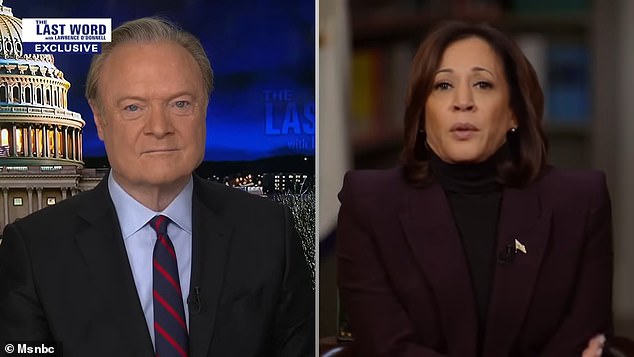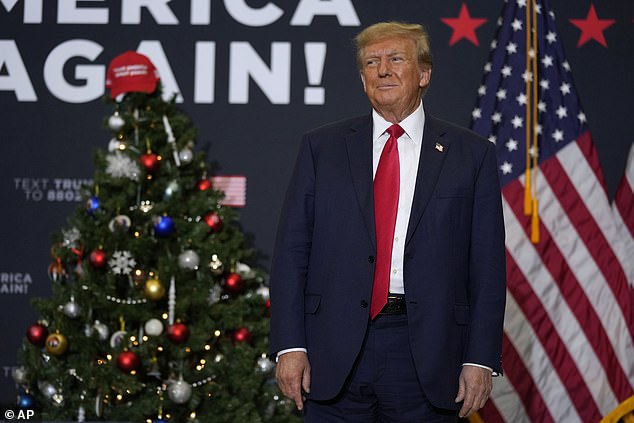Kamala serves up ANOTHER word salad: Vice president says this is ‘the most election of all time’ while responding to Trump’s ‘poisoning the blood of our country’ remarks
Vice President Kamala Harris' response to Donald Trump's quote of Adolf Hitler was to serve up her latest word salad by claiming “this is the most election of our lifetimes.”
This is the latest in a series in which Harris is mocked for her often nonsensical way of speaking.
In a conversation with MSNBC host Lawrence O'Donnell, Harris blasted former President Trump for saying migrants are “poisoning the blood of our country,” a phrase also found in Hitler's 1925 manifesto Mein Kampf.
“You know, every election cycle we talk about is the biggest election of our lifetimes,” Harris said, stumbling over her words and not correcting the error. “Lawrence, this one is, this one is.”
“We are literally talking about people who are trying to divide our country in the most egregious, blatant and profound ways,” the vice president added. “We are talking about those who have the intention and purpose to attack fundamental freedoms.”

Vice President Kamala Harris' final word salad saw her lame criticism of Donald Trump, saying 2020 is 'the most election of our lifetimes'
She concluded, “The freedom to be free from fear of violence and hatred… the freedom to just… be. The freedom to just be.'
While the footage quickly went viral, critics were quick to call out Harris' latest blunder.
“IMPOSSIBLE: Try not to cringe as Kamala Harris' brain breaks on LIVE TV – Lib host in STUNNED SILENCE,” conservative YouTuber Benny Johnson posted on X, formerly Twitter.
Conservative commentator Justin Theory wrote: “Another drunken word salad from Kamala Harris… She can't even be a fear monger.”
“Kamala Harris goes full Xanax and weed with her word salad,” said another user on X.
“She might be worse at speaking than Biden,” one user said in reference to the oldest-ever president who has become known for his gaffes and verbal blunders.
She told the MSNBC host that people found Trump's words “similar to the language” of Nazi dictator Adolf Hitler.
At other times during her interview on MSNBC, Harris added to her confusing stream of consciousness.
“I have been fortunate and blessed to have experienced many situations during my career as vice president where it has become all too clear to me that there are people…of all ages and genders, for that matter, who see value in being the first are what makes them know that. they don't have to be limited by other people's limited understanding of who can do what,” Harris muttered.
The interview was originally scheduled to be in-person, but became virtual after O'Donnell tested positive for COVID.

Trump said Saturday at a rally in New Hampshire that migrants are “poisoning the blood of our country” — a phrase that also appeared in Hirler's 1925 manifesto Mein Kampf
Harris has been repeatedly criticized for her word salads.
At a music festival in New Orleans in July, Harris repeatedly defined the word “culture” and then laughed in a way that critics described as “maniacal” or “cackle.”
“Culture is – it's a reflection of our moment in our time, right? And in today's culture, it's the way we express how we feel about the moment,” she said at the Caesars Superdome.
“And we must always find moments to express how we feel about the moment that reflects joy, because as you know it comes in the morning,” the vice president added before bursting into laughter.
Another time in April, Harris said “moment” in the same sentence many times during a meeting on abortion rights.
During her speech at her alma mater Howard University, she said, “So I think it's really important, as you've heard from so many incredible leaders, that at every moment – and certainly right now – we seize the moment to be able to see the time where we exist and are present, and to be able to contextualize it, to understand where we exist in history and in the moment, as this concerns not only the past but also the future .'
